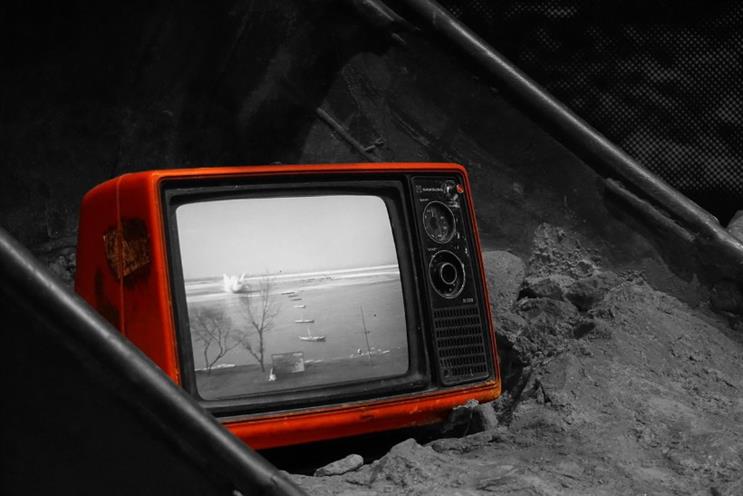
Paul Frampton is CEO at Havas Media UK
Many have provocatively proclaimed the imminent death of TV. In valiant response to this talk, the UK TV industry has proven itself to be in rude health growing c. 5% each year for the last three years. Looking over the pond, we see a much different picture with faster declining audiences for key channels. So questions are asked.
Let’s start with why the UK TV market is very different to the US: an older population, the presence of the BBC and a single time zone. All of which has led to TV continuing to be the most favourite daily pastime of the British public. The IAB’s recent stats for daily usage of "the web" revealed the average was three hours a day; TV averages almost an hour more.
Undoubtedly, there’s some duplication here in terms of entertainment consumption and the means of access, but time spent consuming audiovisual content has never been higher. With the eruption of Facebook, Twitter & Snapchat as discovery platforms for video content, this is only set to grow.
Increasingly, it is becoming almost impossible when talking about TV trading, not to mention online video and programmatic video, or the likes of Zoella and Alfie Deyes. One only needs to reflect on what is hot in the marketing press to see that the "channels" with the most attention are TV and Digital. Engaging audio visual content, distributed and informed by smart data intelligence, is where the party is.
However, there is an argument that says TV bought in its current format has room to grow. Compared to the US market, TV is still great value (cheaper than it was in 2002) and it is also under-penetrated (40-50% less ads per break and UK TV represents 27% of all ad spend versus 40% for the US).But there is a growing body of evidence that shows that the viewers of tomorrow will behave very differently. Already 50% of 16-24’s no longer watch TV live, and the latest BARB numbers show a significant decline in 16-34 audience impacts across all channels.
Engaging audio visual content, distributed and informed by smart data intelligence, is where the party is
Research that Havas has carried out for the BBC suggests millennials watch little or no live TV but have an insatiable appetite for short form content. So whilst TV in the classic sense has proved robust, for me the term "television" from a planning and trading perspective is fast dying. The way TV is bought and measured is ripe for change.
The battle for rights and investment in to original content has never been hotter. BT has made a big play for hero content with Champions League Football and Fear The Walking Dead. Amazon has forked out a fortune for the Top Gear cast. Apple is considering investing in creating its own content and that’s before Google has played its hand. What’s clear is that there is a new era for both content and television right around the corner.
The traditional TV set experience is ripe for disruption. Unlike the web, the quality of discovery is still poor and relies largely on word of mouth, rather than smart algorithms. Netflix has proven the benefits of a data informed model in the US and if UK broadcasters don’t embrace a more data driven approach for surfacing both relevant content and advertising to their viewers, they will be disrupted.
Today’s tech giants will undoubtedly find their way into taking a share of the "TV" market; the question is no longer if, but which ones will win and when. The archaic restrictions of AB deadlines and CRR also cannot last in a world where customer experience is nirvana. Marketers want more options. Technology is also empowering traditional broadcasters and the last 18 months has seen the UK’s powerhouse ITV invest smartly in content and MCN’s.
My brave, near-term prediction with the direction we are headed with content, is that within the next 10 years, channel brands will disappear and we will see the rise of the "platform" as an access point for TV, streamed and web content. If we think about how we now search for music or a film we don’t search by record label or by film studio.
The winners will be those that move with the times and evolve as fast as consumption habits and technology are changing
In 60 years’ time, we certainly won’t be talking about television, nor digital. The 30" spot as the dominant format will be dead. All media will be screenbased and technology will power every one of those screens. There will be smart synchronisation between big screens (OOH, cinema, living room) and small screens (smartphones, wearable tech, connected devices).
A high percentage of AV content and advertising will be personalised to the individual and portable so that it can be accessed from anywhere at any time, whether at home or abroad.
100% of advertising on TV will be programmatically traded (i.e. bought via technology) with big live events traded through an auction where the highest bidder wins. Advertising will be more native and editorially integrated, short form programming will be the norm for mobile devices and more than half of programming will be entirely funded by brands.
So in conclusion, the future for AV looks very bright. The winners will be those that move with the times and evolve as fast as consumption habits and technology are changing.


